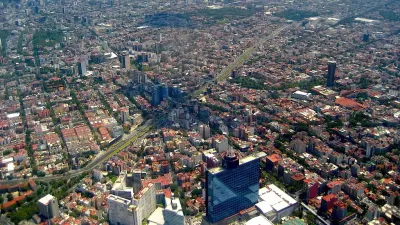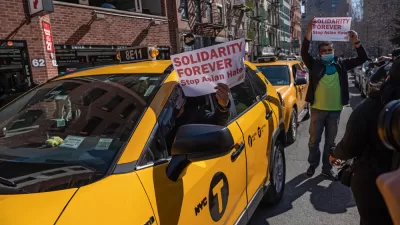As the Mexican government charts the country’s recovery from COVID-19, a newly published paper charts national solutions to urban transportation and housing challenges that will put Mexico’s cities on a path to prosperity and resilience.

 The COVID-19 pandemic has hit those living in urban areas the hardest and is exacerbating these inequalities. Poor urban housing and transport also have an economic toll; the consequences of poor urban mobility cost an estimated 3–5% of the country’s GDP each year. Issues of transport and housing have often been siloed, but it is essential that the two sectors are coordinated together.
The COVID-19 pandemic has hit those living in urban areas the hardest and is exacerbating these inequalities. Poor urban housing and transport also have an economic toll; the consequences of poor urban mobility cost an estimated 3–5% of the country’s GDP each year. Issues of transport and housing have often been siloed, but it is essential that the two sectors are coordinated together.
This new paper explores urban housing and transport in tandem. It recommends policies that Mexico's national government could adopt to boost the country’s COVID-19 recovery, improve the lives and livelihoods of millions of people and protect its cities into the future.
The paper sets out policy reforms for the Mexican federal government to take that will create more compact, connected and clean cities, including:
- Adopt a national urban policy that includes clearly defined roles and encourages coordination between different sectors (housing, transport and land use) and levels of government.
- Improve the quality of existing housing and surrounding public space, rather than focusing on new builds.
- Ensure affordable housing options in central urban areas with good transport for those on low-incomes, helping to build inclusive cities.
- Increase the proportion of federal funding spent on public and active travel rather than car-based mobility by investing in dedicated bus lanes, wider sidewalks and protected bike lanes.
- Support city governments, particularly those that may lack the resources and capacity, to develop comprehensive urban mobility strategies that meet the needs of their residents.
These policies will bring huge social and economic benefits such as increased productivity, reduced inequality and improved health and wellbeing. They also bring significant advantages for the environment and, ultimately, will put Mexico’s urban areas on a path to a more sustainable and inclusive future.
Downloads:
- Compact, Connected, Clean and Inclusive Cities in Mexico: An agenda for national housing and transport policy reform
- Resumen para los formuladores de politicas - Ciudades Compactas, Conectadas, Limpias E Incluventes En Mexico
- Summary - Compact, Connected, Clean and Inclusive Cities in Mexico: An agenda for national housing and transport policy reform
This paper was created in partnership with the OECD and LSE Cities.
FULL STORY: Compact, Connected, Clean and Inclusive Cities in Mexico

Alabama: Trump Terminates Settlements for Black Communities Harmed By Raw Sewage
Trump deemed the landmark civil rights agreement “illegal DEI and environmental justice policy.”

Study: Maui’s Plan to Convert Vacation Rentals to Long-Term Housing Could Cause Nearly $1 Billion Economic Loss
The plan would reduce visitor accommodation by 25% resulting in 1,900 jobs lost.

Why Should We Subsidize Public Transportation?
Many public transit agencies face financial stress due to rising costs, declining fare revenue, and declining subsidies. Transit advocates must provide a strong business case for increasing public transit funding.

Paris Bike Boom Leads to Steep Drop in Air Pollution
The French city’s air quality has improved dramatically in the past 20 years, coinciding with a growth in cycling.

Why Housing Costs More to Build in California Than in Texas
Hard costs like labor and materials combined with ‘soft’ costs such as permitting make building in the San Francisco Bay Area almost three times as costly as in Texas cities.

San Diego County Sees a Rise in Urban Coyotes
San Diego County experiences a rise in urban coyotes, as sightings become prevalent throughout its urban neighbourhoods and surrounding areas.
Urban Design for Planners 1: Software Tools
This six-course series explores essential urban design concepts using open source software and equips planners with the tools they need to participate fully in the urban design process.
Planning for Universal Design
Learn the tools for implementing Universal Design in planning regulations.
Smith Gee Studio
Alamo Area Metropolitan Planning Organization
City of Santa Clarita
Institute for Housing and Urban Development Studies (IHS)
City of Grandview
Harvard GSD Executive Education
Toledo-Lucas County Plan Commissions
Salt Lake City
NYU Wagner Graduate School of Public Service





























